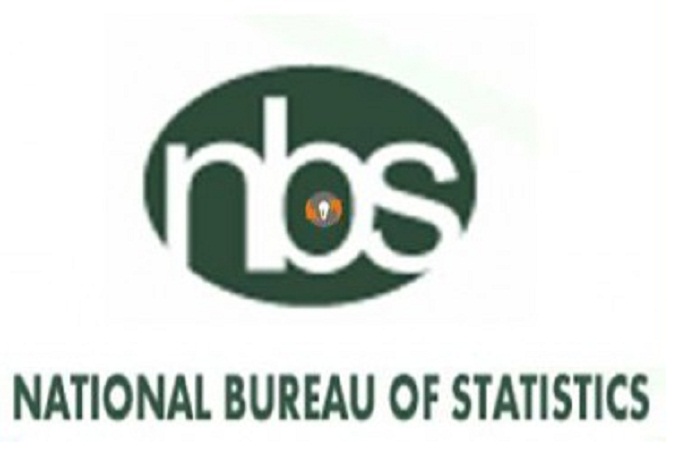Nigeria gets $908.3m capital importation in Q1 – Report

.As Excess Crude Account balance crashes to $2.3bn
Report by the National Bureau of Statistics (NBS) on Wednesday showed that the total value of capital imported into Nigeria in the first quarter (Q1) of 2017 was estimated to be $908.27 million.
This is even as fresh data made available to The Daily Times has shown that Nigeria’s Excess Crude Account balance has dropped from $2.49 billion on April 25 to $2.29 billion on May 23, 2017.
According to the NBS, Capital importation consist of Foreign Direct Investment (FDI), Portfolio Investment and Other Investments.
This was an increase of 27.75% relative to the same quarter of 2016 but it was, nevertheless, 41.36% smaller than the value of capital imported in the previous quarter and the second lowest value recorded since 2007.
According to the NBS, there was a high-profile sale of (bonds denoted in a non-local currency) during the quarter, but it has not yet appeared in the data.
Other investment was the largest component of imported capital in the first quarter of 2017 and accounted for $383.28 million or 42.20% of the total.
This was despite a large quarterly fall of 58.34%, relative to the value of $920.03 million recorded in the previous quarter. However, last quarter’s value was unusually high and other investments recorded a year on year increase of 44.37%.
Loans continues to dominate Other Investment, and accounted for 96.35% of this category during the quarter, although marginal amounts of capital were also imported as Currency ($3 million) and Other Claims ($11 million).
“There is a lag between subscription and actual payment and therefore it is possible that this will show up next quarter,” the report stated.
Capital importation was particularly low in January, at $187.90 million; making it the only fourth month since 2007 in which capital importation was less than $200 million.
NBS further noted that the main driver of the quarterly decline was a fall in other Investment, although Foreign Direct Investment (FDI) also contributed.
Portfolio investment was the only category to record an increase relative to the previous quarter.
The fall in FDI comes after four consecutive quarters of increase, and the fall in other Investment follows three consecutive quarters of increase. However, the data is volatile and therefore the dip in Q1 may not be sustained.
Nearly all of the quarterly fall resulted from declines in capital imported into the Telecommunications and Oil and Gas sectors, which recorded unusually high values in the previous quarter.”
The second largest component of capital importation in the first quarter of 2017 was Portfolio Investment, which accounted for $313.61 million, or 34.53% of the total.
This represented growth of 10.34% relative to the previous quarter, and 15.71% relative to the same quarter of 2016; this was the only category to record both year on year and quarterly increases, and it was the first year on year increase since the third quarter of 2014. This was possibly related to recent successes in stabilizing the Naira: during the quarter the Naira halted its continual decline, although it remains to be seen if this lasts. Portfolio investment is likely to be more affected than this than other investment types, due to its short-term nature.
There was a significant change in the composition of Portfolio Investment. Portfolio Equity, usually the largest component, declined from $176.44 million in the previous quarter to $101.99 million, a fall of 42.19%. By contrast, Money Market Instruments increased from $82.37 million to $211.61 million, an increase of 156.90%.
The Banking and Oil and Gas sectors were the third and fourth largest capital importing sectors, accounting for $126.00 million (13.87% of the total) and $101.08million (11.13%) respectively. Banking has also been a consistently important sector for imported capital, but the Oil and Gas sector has increased in importance in recent periods.
Compared to the previous quarters, the Banking and Oil and Gas sector recorded decreases of 21.88% and 69.12% respectively.
Lagos accounts for most of the capital imported into the country in the first quarter of 2017; 95.32% which represents a slight decrease in its share relative to the previous quarter, when it was 96.38%, but an increase relative to the share in the same quarter of 2016, of 92.53%.
Akwa Ibom State and Abuja were the states to record the second and third largest amounts of imported capital, recording values of $18.36 million and $14.87 million respectively.
Meanwhile, fresh data made available to The Daily Times has shown that Nigeria’s Excess Crude Account balance has dropped from $2.49 billion on April 25 to $2.29 billion on May 23.
The account details doled out from to the office of Accountant General of the Federation, Ahmed Idris, on Wednesday, revealed that the allocations from the Federation Account to the three tiers of government also declined by N52. 07 billion from the N467.8 billion shared in March to N 415.73 billion in April this year.
Also, there was a decrease of N57.47 billion recorded in gross statutory revenue from N331.58 billion in March to N274.1 billion in April.
The document revealed that Federal Government received N163.89 billion while states and the 774 local government councils received N117.59 billion and N87.77 billion, respectively.
The sum of N29.83 billion was shared to the oil-producing states based on the 13 percent derivation principle, while the revenue- generating agencies received N16.52 billion as cost of revenue collection.
The decrease in revenue to crude oil production, according to Idris, was due to sabotage and shutdown of installations, especially in the Niger Delta region.
“Despite the improvement (in prices of crude oil), production still suffered the perennial setbacks,” he said.








